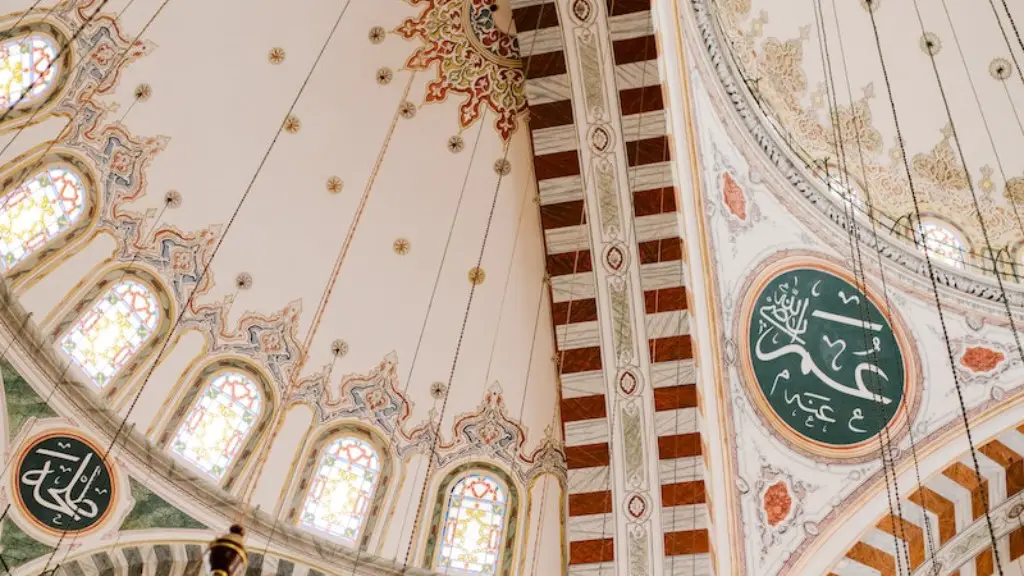Who Does Hinduism Believe In?
Hinduism is one of the oldest religions in the world, and its followers believe in a variety of gods and goddesses. These gods and goddesses are known as Devas and each has their own unique qualities and powers. Hindus believe in the concept of reincarnation; this means that the soul of a person moves between different physical forms until they reach a state of moksha, or enlightenment. As well as a variety of gods, Hinduism also embraces a wide range of beliefs, practices and scripts.
Origin of the Belief System
Hinduism is said to have originated in India during the Vedic period, which dates back to approximately 1500 BCE. It is a polytheistic religion; this means that it is based on the worship of multiple gods. The main scriptural texts are the Vedas and the Upanishads, which are the foundation of this belief system.
Gods of Hinduism
There are a variety of gods and goddesses in Hinduism, each with their own unique qualities and powers. The three main gods are Brahma, Vishnu and Shiva. Brahma is the Creator, Vishnu is the Preserver, and Shiva is the Destroyer. Other gods and goddesses that are worshipped include Ganesha, Hanuman, Lakshmi, Saraswati, Kubera and Indra.
The Concept of Dharma
The concept of Dharma is an important part of Hinduism. Dharma is the path of righteousness and the duty of each individual to live in accordance with truth and justice. It is believed that if an individual lives their life in harmony with Dharma, they will be rewarded in the afterlife.
Prayer and Rituals
Hindus practice a variety of prayer and rituals. Daily or weekly prayers are said to the devas and deities, and offerings are made in their honour. Hindus also perform daily meditations and aarti, a ritual in which they wave a fire or lamp around the deity they are worshipping. Other rituals include festivals, pilgrimages, and yajnas, a fire ritual.
The Importance of Caste
Hinduism places a great emphasis on the caste system, which is a hierarchical system that divides people into different classes. It is believed that an individual’s caste is determined by their karma, or their actions in previous lifetimes. Hindus believe that one should stay within their caste and not transgress the boundaries.
The Role of the Priest
Priests have an important role in Hinduism, as they are responsible for conducting rituals and ceremonies. They can also provide spiritual counsel and guidance. Priests are considered to be highly educated in the sacred texts of Hinduism and have a strong understanding of its beliefs and practices.
Cultural Influence
Hinduism has had a huge influence on the culture of India; many of the customs and rituals are based on Hindu beliefs. The food, language, art and architecture of India have been heavily influenced by Hinduism, and the religion has been an integral part of Indian life for thousands of years.
Symbolism of Hinduism
Hinduism is marked by powerful and meaningful symbols, which express different ideas, beliefs and concepts. The Swastika, Om, Trishul and Nandi Bull are some of the most popular symbols associated with Hinduism, each of which conveys a different meaning.
The Cycle of Rebirth
The belief in reincarnation is central to Hinduism. This is the belief that the soul moves between different lifetimes, in human or animal form, until it reaches a state of moksha or enlightenment. Hindus believe that the Karma of one’s actions in the past determines the form that the soul takes in the next life.
Ethics and Morality
Hinduism has a strong ethical code and places great emphasis on morality. The concept of Dharma is central to this, as well as the belief that an individual should always strive to live in accordance with truth and justice. Hindus also place an emphasis on living a peaceful and harmonious life, and respect for all living things.
Festivals and Celebrations
Hinduism has many different festivals and celebrations, each of which has its own importance and significance. Some of the most popular festivals include Diwali, which celebrates the victory of light over darkness, Holi, which celebrates the arrival of spring, and Navratri, which is a nine-day festival dedicated to the worship of the Goddess Durga.
Yoga and Meditation
Yoga and meditation are both integral parts of Hinduism; they are used as means of spiritual achievemen, peace and enlightenment. Hindus believe that by practicing yoga and meditation, the individual can gain a deeper understanding of themselves and the divine.
The Zoroastrian Connection
There are certain connections between Hinduism and Zoroastrianism, which is an ancient religion that originated in Iran. Both Hindus and Zoroastrians believe in the existence of numerous deities and both have a strong emphasis on morality and ethics. However, Zoroastrianism does not believe in the concept of reincarnation and does not accept the caste system.
Conclusion
Hinduism is one of the oldest and most influential religions in the world. It is a complex and multi-faceted religion, with a vast array of gods and goddesses, scripts and beliefs. Hinduism is deeply rooted in ethics, morality and the concept of Dharma, and has deeply influenced the culture, art and architecture of India.

